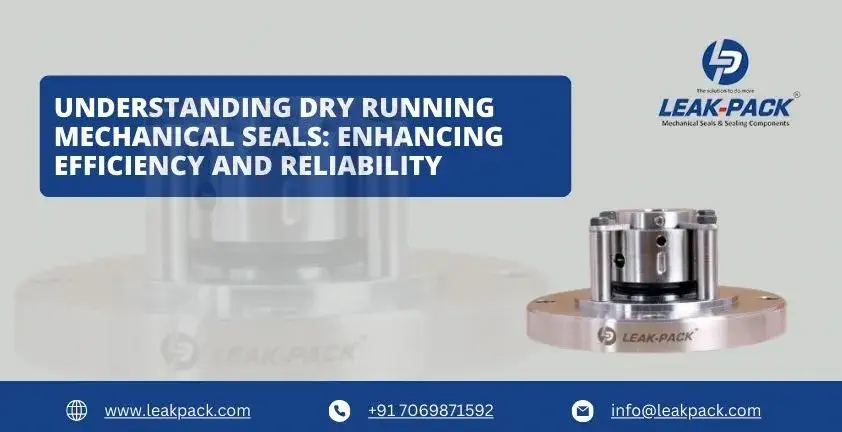Securing Industrial Operations with Dry Running Mechanical Seals
In the realm of industrial machinery and equipment, ensuring optimal performance while mitigating risks of leaks and contamination is paramount. Mechanical seals play a pivotal role in achieving this balance, offering a reliable barrier against fluid leakage in various applications. Among the diverse types of mechanical seals, dry running mechanical seals stand out for their unique characteristics and benefits. Let’s delve into what makes dry running mechanical seals essential for modern industries.
What are Dry Running Mechanical Seals?
Dry running mechanical seals are innovative sealing solutions designed to operate without the need for external lubrication or fluid support. Unlike traditional seals that rely on a lubricating fluid to prevent friction and heat generation, dry running seals function efficiently in applications where process fluids are incompatible with lubricants or where fluid contamination poses a risk.
Features and Components:
1. Self-Lubricating Properties: Dry running mechanical seals incorporate materials and designs that reduce friction and wear without relying on external lubrication. This self-lubricating feature enhances longevity and reliability, even in demanding operating conditions.
2. Robust Construction: Manufacturers employ high-quality materials such as carbon, ceramic, and synthetic polymers to ensure durability and resistance to corrosion and abrasion.
3. Enhanced Performance: Dry running seals are engineered to withstand high temperatures, pressures, and speeds, making them suitable for a wide range of industrial applications, including pumps, mixers, agitators, and compressors.
Applications and Industries:
1. Chemical Processing: Dry running mechanical seals find extensive use in chemical processing industries where preventing fluid contamination is critical. They provide a reliable seal against corrosive and abrasive fluids, enhancing equipment reliability and process safety.
2. Pharmaceutical and Food Processing: In hygienic applications such as pharmaceutical and food processing, maintaining product purity is paramount. Dry running seals offer a contamination-free sealing solution, ensuring compliance with stringent quality and regulatory standards.
3. Petrochemical and Oil & Gas: Industries handling volatile and hazardous fluids rely on dry running mechanical seals to prevent leaks and ensure environmental protection. These seals provide a robust barrier against hydrocarbons, acids, and other aggressive substances.
Benefits of Dry Running Mechanical Seals:
1. Reduced Maintenance: The self-lubricating nature of dry running seals minimizes maintenance requirements, leading to cost savings and increased equipment uptime.
2. Enhanced Safety: By eliminating the need for external lubricants, dry running seals reduce the risk of fluid contamination and environmental hazards, enhancing workplace safety.
3. Improved Efficiency: With lower friction and reduced heat generation, dry running seals contribute to energy efficiency and prolong equipment lifespan, optimizing operational performance.
4. Versatility: Dry running mechanical seals are versatile solutions that can be customized to suit specific application requirements, offering flexibility and adaptability across diverse industries.
Conclusion
As leading Dry Running Mechanical Seals Manufacturers continue to innovate and refine their products, the demand for dry running seals is on the rise across various industrial sectors. With their exceptional performance, reliability, and environmental benefits, dry running mechanical seals represent a cornerstone in modern engineering practices, ensuring seamless operations and safeguarding valuable assets against leaks and contamination. Embracing these advanced sealing solutions not only enhances equipment efficiency but also underscores a commitment to sustainability and operational excellence in today’s dynamic industrial landscape.

